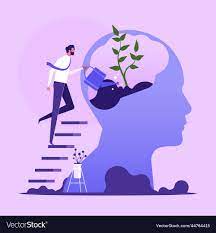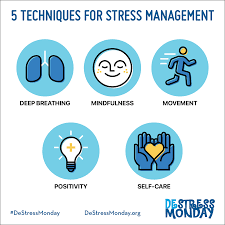Self-Improvement: Unlocking Your Potential for a Better Life
Self-improvement is a journey of personal growth and development that empowers individuals to enhance their skills, knowledge, and overall well-being. It is a proactive approach to life, where individuals take charge of their own progress and strive to become the best version of themselves.
The pursuit of self-improvement encompasses various aspects of one’s life, including physical health, mental well-being, emotional intelligence, relationships, career growth, and personal fulfillment. It involves setting goals, acquiring new skills, adopting positive habits, and continuously learning and evolving.
One of the fundamental pillars of self-improvement is self-awareness. Understanding oneself on a deeper level allows individuals to identify their strengths and weaknesses, enabling them to focus their efforts on areas that need improvement. Self-awareness also helps in cultivating a growth mindset – the belief that abilities can be developed through dedication and hard work.
Setting clear goals is another crucial aspect of self-improvement. By defining what you want to achieve in different areas of your life, you provide direction and purpose. Goals should be specific, measurable, achievable, relevant, and time-bound (SMART). They act as milestones that guide your progress and keep you motivated along the way.
To embark on a journey of self-improvement, it’s essential to adopt a lifelong learning mindset. Continuous learning expands your knowledge base and equips you with new skills that can enhance various aspects of your life. Whether it’s reading books on personal development or attending workshops and courses in your area of interest or expertise – investing in learning opportunities opens doors to new possibilities.
Taking care of your physical health is an integral part of self-improvement. Regular exercise not only improves physical fitness but also boosts mental well-being by reducing stress levels and promoting better sleep quality. A balanced diet nourishes the body with essential nutrients while fostering overall vitality. Prioritizing self-care activities, such as mindfulness practices or engaging in hobbies, also contributes to a healthier and more balanced life.
Self-improvement goes beyond individual growth; it also encompasses building meaningful relationships and fostering effective communication skills. Developing empathy and active listening skills allows for better understanding and connection with others. Building a support network of like-minded individuals provides encouragement, accountability, and opportunities for collaboration.
Self-improvement is not a linear process; setbacks and challenges are inevitable. However, it’s important to view these obstacles as opportunities for growth rather than roadblocks. Embracing resilience and perseverance helps navigate through difficult times, learn from failures, and bounce back stronger.
In conclusion, self-improvement is a transformative journey that empowers individuals to unlock their potential and lead fulfilling lives. By cultivating self-awareness, setting goals, embracing continuous learning, prioritizing physical health, nurturing relationships, and fostering resilience – one can embark on a path of personal growth that leads to greater happiness and success. Remember that self-improvement is not an overnight endeavor but rather a lifelong commitment to becoming the best version of yourself. So start today – take that first step towards unlocking your true potential!
Common Inquiries on Self-Improvement: Defining, Steps, Getting Started, and Areas
- What does self-improvement mean?
- What are the 5 steps to improve yourself?
- How do I start self-improvement?
- What are 3 areas of self-improvement?
What does self-improvement mean?
Self-improvement refers to the conscious and intentional effort individuals put into enhancing various aspects of their lives. It involves personal growth, development, and transformation in areas such as skills, knowledge, habits, mindset, relationships, and overall well-being. Self-improvement is driven by the desire to become the best version of oneself and to reach one’s full potential. It often involves setting goals, acquiring new skills, adopting positive habits, cultivating self-awareness, and continuously learning and evolving. Self-improvement is a lifelong journey that empowers individuals to take charge of their own personal growth and strive for a better life.
What are the 5 steps to improve yourself?
- Set Clear Goals: Start by identifying what areas of your life you want to improve and set specific, measurable, achievable, relevant, and time-bound (SMART) goals. Having clear goals provides direction and purpose for your self-improvement journey.
- Self-Awareness: Take the time to understand yourself on a deeper level. Reflect on your strengths, weaknesses, values, beliefs, and behaviors. Self-awareness allows you to identify areas that need improvement and helps you make conscious choices aligned with your values.
- Continuous Learning: Embrace a lifelong learning mindset. Seek out opportunities to expand your knowledge and acquire new skills in areas that interest you or are relevant to your personal or professional growth. Read books, take courses or workshops, attend seminars or webinars – investing in learning opens doors to new possibilities.
- Adopt Positive Habits: Focus on developing positive habits that support your goals and well-being. This could include practicing self-care activities like exercise, meditation, or journaling; cultivating healthy relationships; managing time effectively; or adopting a growth mindset that embraces challenges as opportunities for growth.
- Accountability and Reflection: Hold yourself accountable for your progress by regularly reviewing your goals and tracking your actions. Reflect on your achievements and areas for improvement along the way. Celebrate milestones reached and adjust strategies if needed. Consider seeking support from a mentor, coach, or joining a community of like-minded individuals who can provide guidance and accountability.
Remember that self-improvement is an ongoing process that requires patience, dedication, and self-compassion. Be kind to yourself as you navigate through challenges and setbacks while staying focused on the progress you are making towards becoming the best version of yourself.
How do I start self-improvement?
Starting your self-improvement journey can be an exciting and transformative experience. Here are some steps to help you get started:
- Reflect on Your Values and Priorities: Take some time to reflect on what truly matters to you in life. Identify your core values and what you want to prioritize in terms of personal growth and development. This will provide a foundation for setting meaningful goals.
- Set Clear Goals: Define specific, measurable, achievable, relevant, and time-bound (SMART) goals that align with your values and priorities. Break down larger goals into smaller, actionable steps that you can work on consistently.
- Assess Your Strengths and Weaknesses: Self-awareness is crucial for self-improvement. Reflect on your strengths and weaknesses across different areas of your life. This will help you identify areas where you can focus your efforts for improvement.
- Develop a Growth Mindset: Embrace a growth mindset, which is the belief that abilities can be developed through dedication and effort. Embrace challenges, view setbacks as learning opportunities, and believe in your ability to learn and grow.
- Seek Knowledge and Learning Opportunities: Engage in continuous learning by reading books, attending workshops or seminars, taking courses online or offline, or seeking mentorship from experts in areas of interest or personal development.
- Take Care of Your Physical Health: Prioritize your physical well-being by incorporating regular exercise into your routine, adopting a balanced diet, getting enough sleep, managing stress effectively, and engaging in activities that promote relaxation and rejuvenation.
- Cultivate Positive Habits: Identify habits that support your goals and well-being while eliminating those that hinder progress. Start small by incorporating one positive habit at a time into your daily routine until it becomes second nature.
- Surround Yourself with Supportive People: Build a network of like-minded individuals who inspire and motivate you on your self-improvement journey. Seek out mentors, join communities or groups with similar interests, and engage in meaningful conversations that foster growth.
- Practice Self-Care: Prioritize self-care activities that nourish your mind, body, and soul. This can include practicing mindfulness or meditation, engaging in hobbies or creative outlets, spending time in nature, or simply taking time for yourself to relax and recharge.
- Stay Committed and Patient: Remember that self-improvement is a lifelong journey. Stay committed to your goals and be patient with yourself as progress takes time. Celebrate small victories along the way and embrace setbacks as opportunities for growth.
Starting your self-improvement journey is a personal endeavor, so tailor these steps to suit your unique needs and aspirations. Embrace the process with an open mind and heart, and enjoy the transformative path of personal growth ahead of you!
What are 3 areas of self-improvement?
There are numerous areas of self-improvement, but here are three common and important areas that individuals often focus on:
- Personal Development: This area involves enhancing your knowledge, skills, and abilities to reach your full potential. It can include areas such as improving communication skills, time management, goal setting, decision-making, self-confidence, and emotional intelligence. Personal development focuses on building a strong foundation for personal growth and success in various aspects of life.
- Health and Wellness: Taking care of your physical and mental well-being is crucial for overall self-improvement. This area encompasses adopting healthy lifestyle habits, such as regular exercise, nutritious eating, stress management techniques, quality sleep patterns, and practicing mindfulness or meditation. Prioritizing health and wellness helps increase energy levels, improves resilience, enhances mental clarity, and promotes a balanced life.
- Relationships and Social Skills: Developing healthy relationships is essential for personal growth and happiness. This area involves improving interpersonal skills like active listening, empathy, conflict resolution, assertiveness, and effective communication. Building strong connections with others fosters support systems, enhances teamwork abilities in professional settings, deepens personal relationships with friends or family members while promoting a sense of belonging and fulfillment.
Remember that self-improvement is highly individualized; these three areas provide a starting point for focusing on personal growth but can be expanded upon based on individual goals and aspirations.




